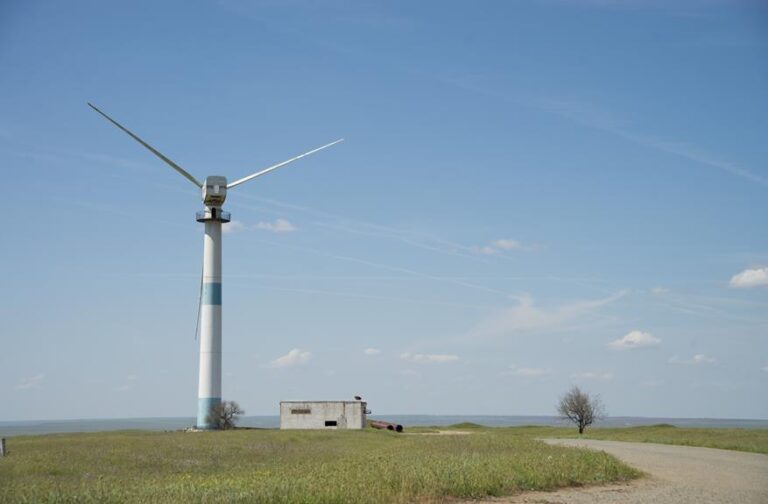Eco-friendly Veganism: Paving the Way to a Better Future
Welcome, fellow stewards of the Earth, to the realm of veganism, where our choices hold the power to shape a sustainable future.
As we embark on this journey together, we will uncover the myriad benefits awaiting us. Through reducing our environmental impact, lowering our carbon footprint, and preserving precious natural resources, we become catalysts for change.
Let us unite in our passion for a better world, one plate at a time, and embrace the belonging that comes with living a compassionate, sustainable lifestyle.
Reduced Environmental Impact
One of the major benefits of veganism is its ability to significantly reduce our environmental impact. By adopting a vegan lifestyle, we can contribute to the reduction in greenhouse gases and promote sustainable agriculture practices.
Animal agriculture is a leading cause of greenhouse gas emissions, contributing to climate change and environmental degradation. The production of meat and dairy products requires vast amounts of land, water, and resources, leading to deforestation, water pollution, and habitat destruction.
However, by choosing plant-based alternatives, we can help mitigate these issues. Veganism promotes sustainable agriculture practices such as organic farming, crop rotation, and the use of natural fertilizers, which help preserve soil health and protect biodiversity.
Lower Carbon Footprint
When it comes to lowering our carbon footprint, adopting a vegan lifestyle is a powerful choice. By eliminating animal products from our diets, we can significantly reduce greenhouse gas emissions, as animal agriculture is a major contributor to climate change.
Making sustainable dietary choices not only benefits the planet, but also allows us to take a proactive role in preserving the environment for future generations.
Additionally, by opting for eco-friendly food choices, such as plant-based alternatives, we can further minimize our impact on the environment.
Environmental Impact of Veganism
By adopting a vegan lifestyle, we can significantly reduce our carbon footprint and contribute to a more sustainable environment. Going vegan means making choices that have a positive impact on the planet. Here are three key reasons why veganism helps lower our carbon footprint:
- Reduced Emissions: Animal agriculture is a major contributor to greenhouse gas emissions, including methane and nitrous oxide. By eliminating animal products from our diet, we decrease the demand for livestock farming, which leads to a decrease in emissions.
- Animal Agriculture Impacts: The production of meat, dairy, and eggs requires vast amounts of land, water, and resources. By choosing plant-based alternatives, we reduce the environmental strain caused by animal agriculture, such as deforestation, water pollution, and habitat destruction.
- Sustainability: Veganism promotes a more sustainable food system by focusing on plant-based foods, which require fewer resources to produce. This shift helps conserve natural resources, reduce pollution, and protect biodiversity.
Sustainable Dietary Choices
To further reduce our carbon footprint and make sustainable dietary choices, we can prioritize plant-based foods in our daily meals. By embracing a diet that’s centered around fruits, vegetables, legumes, and grains, we contribute to reduced waste and promote sustainable agriculture.
Plant-based foods require fewer resources to produce compared to animal-based products, resulting in lower greenhouse gas emissions and less strain on our planet’s resources.
Reducing waste is another crucial aspect of sustainable dietary choices. By consuming plant-based foods, we minimize food waste because these foods have a longer shelf life and are less likely to spoil quickly. Additionally, plant-based diets can help address the issue of food insecurity by making efficient use of limited resources.
Choosing sustainable agriculture practices means supporting methods that prioritize soil health, biodiversity, and water conservation. By opting for plant-based meals, we encourage farmers to adopt sustainable farming techniques that protect the environment and promote long-term food security.
Together, through our dietary choices, we can make a significant impact on reducing our carbon footprint and creating a more sustainable future for our planet. Let’s embrace the power of plant-based foods and contribute to a healthier, more sustainable world.
Eco-Friendly Food Choices
To reduce our carbon footprint and make eco-friendly food choices, we prioritize plant-based meals. By embracing plant-based nutrition, we can significantly lower our impact on the environment. Here are three reasons why plant-based diets are a sustainable choice:
- Reduced greenhouse gas emissions: Livestock farming is a major contributor to greenhouse gas emissions, particularly methane and nitrous oxide. By shifting towards plant-based meals, we can reduce these emissions and combat climate change.
- Conservation of resources: Sustainable farming practices prioritize the efficient use of resources like water, land, and energy. Plant-based diets require fewer resources compared to animal-based diets, as plant crops generally have higher yields and require less land and water.
- Preservation of biodiversity: Sustainable farming practices support biodiversity by promoting crop rotation, agroforestry, and organic farming. Plant-based diets encourage the preservation of ecosystems and protect endangered species by reducing the need for large-scale animal agriculture.
Preservation of Natural Resources
Our commitment to veganism ensures that we actively contribute to the preservation of our natural resources. By adopting a plant-based diet, we support sustainable agriculture and natural resource management.
Animal agriculture is a major contributor to deforestation, water pollution, and greenhouse gas emissions. Choosing vegan options reduces the demand for animal products, leading to a decreased need for land and water resources.
Livestock farming requires vast amounts of land for grazing and growing animal feed, putting a strain on our natural habitats. Additionally, the excessive use of water in animal agriculture depletes our freshwater reserves.
Decreased Water Usage
Decreased water usage is one of the key benefits of adopting a vegan lifestyle. By choosing plant-based foods over animal products, we can significantly reduce our water footprint.
Animal agriculture is a major contributor to water scarcity, as it requires vast amounts of water for animal feed, drinking, and waste management.
Making the switch to veganism allows us to conserve this precious resource and contribute to a more sustainable future.
Conservation Through Veganism
By adopting a vegan lifestyle, we significantly reduce our water usage and contribute to the conservation of this precious resource.
Here are three ways in which veganism helps conserve water:
- Plant-based diet: Animal agriculture is a major consumer of water. By choosing a plant-based diet, we eliminate the need for water-intensive practices such as watering crops for livestock feed. This reduces the strain on our water resources.
- Efficient farming methods: Veganism promotes sustainable farming practices that prioritize water conservation. Organic farming techniques, like crop rotation and composting, improve soil quality and water retention. By supporting these methods, we contribute to the preservation of water sources.
- Wildlife preservation: Conserving water is crucial for preserving wildlife habitats. By reducing our water usage through veganism, we help protect the ecosystems that many animals rely on for their survival.
Together, by embracing veganism, we can make a positive impact on water conservation and safeguard the habitats of countless species. Let’s join hands in protecting our planet and creating a sustainable future for all.
Environmental Impact of Veganism
Embracing a vegan lifestyle has a significant environmental impact, particularly in terms of decreased water usage. By choosing plant-based foods over animal products, we can greatly reduce the amount of water required for food production. Animal agriculture accounts for a staggering amount of water consumption, from the watering of livestock to irrigating crops used for animal feed.
In contrast, sustainable agriculture practices used in vegan farming prioritize water conservation. Additionally, reducing emissions associated with animal agriculture, such as methane from livestock, also contributes to water preservation.
When we opt for veganism, we actively participate in a movement that promotes a more sustainable and water-conscious future. Together, we can make a difference by making compassionate choices that benefit not only ourselves but also our planet.
Biodiversity Conservation
To protect the Earth’s diverse ecosystems and species, we must prioritize the preservation of biodiversity by adopting a vegan lifestyle. Biodiversity preservation is crucial for maintaining the delicate balance of our planet’s ecosystems and ensuring their long-term health. Here are three reasons why veganism plays a vital role in biodiversity conservation:
- Reduced habitat destruction: Animal agriculture is a leading cause of deforestation and habitat loss. By choosing a plant-based diet, we can decrease the demand for land-intensive livestock farming, allowing more space for natural habitats and protecting countless species.
- Minimized species extinction: The exploitation of animals for food disrupts ecosystems and threatens the survival of many species. By embracing veganism, we can help prevent the extinction of endangered animals, allowing them to thrive and contribute to the overall biodiversity of our planet.
- Enhanced ecological resilience: A diverse range of species contributes to the stability and resilience of ecosystems. Veganism promotes a more sustainable and balanced food system that supports a greater variety of plants and animals, ultimately bolstering the resilience of our planet’s ecosystems.
Mitigation of Deforestation
As we delve into the subtopic of mitigating deforestation, it becomes evident that our vegan lifestyle plays a pivotal role in preserving our planet’s forests. Deforestation is a critical issue that threatens the biodiversity and stability of ecosystems worldwide. By choosing a vegan lifestyle, we actively contribute to the mitigation of deforestation and promote forest conservation.
Animal agriculture is a major driver of deforestation, as vast amounts of land are cleared to make way for livestock grazing and feed production. The demand for meat, dairy, and other animal products fuels this destructive practice. However, by embracing veganism, we reduce the demand for animal-based products and alleviate the pressure on our forests.
By eliminating animal products from our diets, we also decrease the need for large-scale agriculture, which often leads to further deforestation. Plant-based diets require less land, water, and resources, making them inherently more sustainable and environmentally friendly.
In addition to reducing deforestation, veganism also helps combat climate change. Forests act as carbon sinks, absorbing and storing carbon dioxide, a greenhouse gas that contributes to global warming. By preserving our forests through veganism, we can mitigate climate change and ensure a more sustainable future for ourselves and future generations.
Conclusion
Adopting a vegan lifestyle isn’t only beneficial for our health, but also for the planet.
Did you know that by going vegan, you can save up to 1,100 gallons of water per day? That’s equivalent to taking a month-long shower! This staggering statistic highlights the significant impact that our dietary choices can have on conserving water resources.
By choosing a sustainable lifestyle, we can contribute to a healthier planet for future generations.
Let’s make a difference today.






